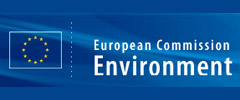Women's Major Group
MAMA-86 president, Anna Golubovska, speaks to ministers on Sustainable Energy and Women at CSD-14 high level segment session, Thursday 11 May.
11.05.2006 |Sascha Gabizon
The Decision of CSD-9 called on all governments to undertake actions “supporting international endeavors to promote equal access and opportunities for women in relation to energy, including credit facilities, and involvement in energy policy decision-making processes” as well as to strengthen the role of women in decision-making. The Johannesburg Plan of Implementation reaffirmed the commitment “to ensuring that women’s empowerment, emancipation and gender equality are integrated in all activities encompassed within Agenda 21, the Millennium Development Goals and the Plan of Implementation of this Summit.” These commitments were also reflected in the Beijing Platform for Action, Chapter E.
The Women’s Major Group has learnt that a critical means to tackling energy poverty and unsustainable energy use requires a commitment to a rights-based and gender sensitive approach, to energy policy planning and implementation. We urge governments to refocus their commitments during this review session on international cooperation toward meeting these goals, and setting targets and timetables during next year’s policy session to achieve them. We applaud governments who have taken leadership in this regards.
We would like to highlight eight key actions to achieving gender equality and women’s empowerment.
The first action is to ensure women’s access to and ownership of clean and affordable energy sources, especially poor women in developing, transitional, and developed countries. Governments should invest in affordable end-use technologies and fuels that directly meet poor women’s energy needs; particularly for saving time and labour, income generation, reducing indoor air pollution, improving health, and ensuring food and personal security. Intellectual property rights should not limit women’s access to energy technologies.
The second action is to replace nuclear energy with readily available renewable energy sources (such as solar, wind, biofuels, etc). This is an unsustainable, polluting, and dangerous source of energy and is a concern for women from around the globe. Governments must phase out nuclear and shift subsidies to the research, production and dissemination of renewable energy technologies and energy efficiency. We call for this to be reflected in the Chair’s summary and the same consideration to be given to fossil fuels.
The third action is to guarantee women’s effective participation, representation and decision-making at every level. We can start with gender balance in the panels, bureau, and delegations at CSD-15.
The fourth action is to develop the capacities of energy institutions to engage with gender issues. Governments should support professional education for women in energy, urban planning, engineering and vocational technical training, as well as gender training for energy professionals. This will facilitate a critical mass of women and men practitioners that can effectively integrate a gender perspective in the energy and development sectors.
The fifth action is to build the individual capabilities of women to facilitate their access to information, skills development, and management and ownership of energy technologies and businesses. Governments must actively support mentorship for young women and women’s involvement in producing, managing and marketing new energy services linked to employment creation and micro/meso-enterprises.
The sixth action is to ensure that conservation and environmentally-friendly approaches are central to the provision of energy services, with particular attention to women’s use of biomass and the possible impacts on biodiversity.
The seventh action is to engender energy policy-making, project implementation and financial mechanisms. Governments and energy institutions should collect and utilize gender-disaggregated data and conduct gender analysis at each step of policy, programme and project planning, budgeting, implementation, monitoring and evaluation.
The eighth action is to ensure that all climate change mitigation and adaptation interventions incorporate the different needs and interests of women and men, particularly given the disproportionate impacts of natural disasters on women.
These actions are not only best practice, they are essential to addressing energy poverty, not only for women, but for all. The Women’s Major Group calls on governments to work together at CSD to create a “new era for women in the energy sector”.

































